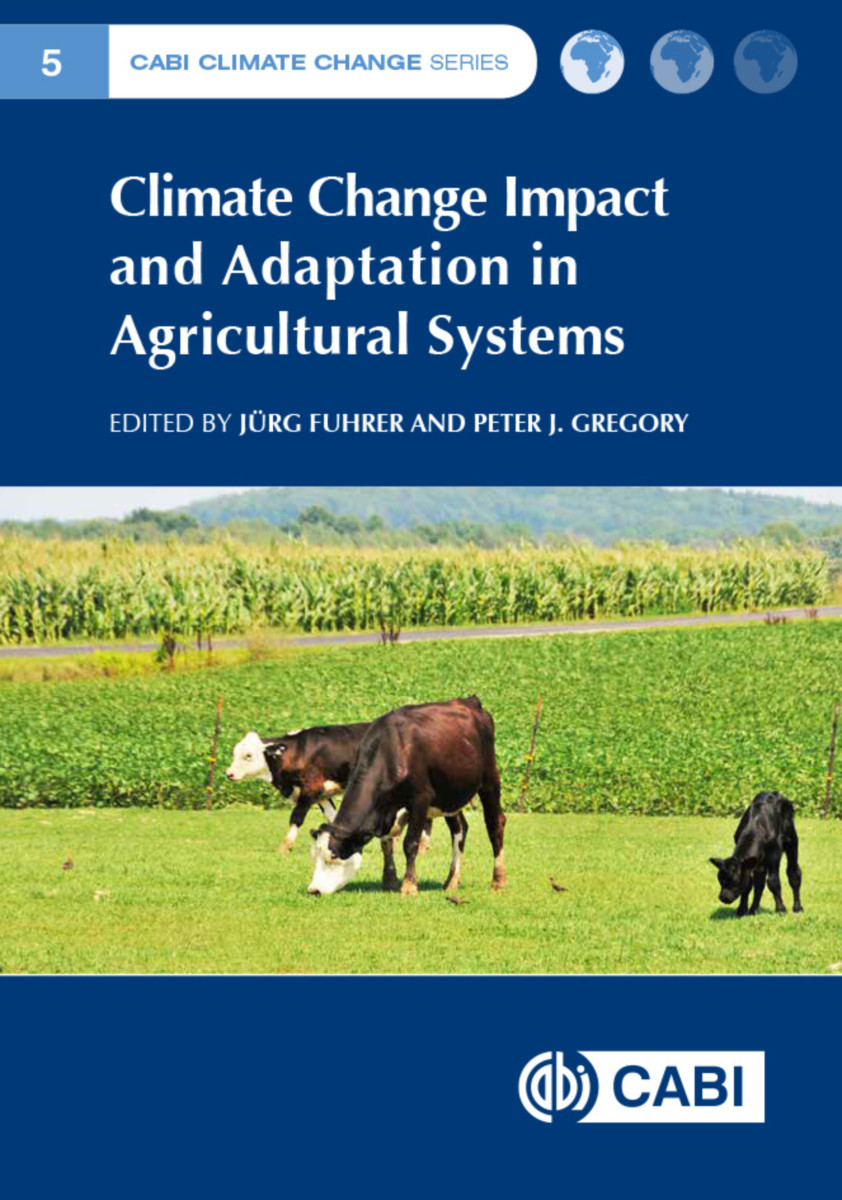- Publisher
CABI - Published
8th November 2019 - ISBN 9781786395351
- Language English
- Pages 298 pp.
- Size 6.75" x 9.5"
- Images figures & tables
The focus of this book is future global climate change and its implications for agricultural systems which are the main sources of agricultural goods and services provided to society. These systems are either based on crop or livestock production, or on combinations of the two, with characteristics that differ between regions and between levels of management intensity. In turn, they also differ in their sensitivity to projected future changes in climate, and improvements to increase climate-resilience need to be tailored to the specific needs of each system. The book will bring together a series of chapters that provide scientific insights to possible implications of projected climate changes for different important types of crop and livestock systems, and a discussion of options for adaptive and mitigative management.
"Agriculture is susceptible to climate change and to ensure food, feed, and fiber production for future generations will require effective adaptation strategies. Fuhrer (Agroscope Research, Switzerland) and Gregory (Univ. of Reading, UK) have assembled an international group of authors to discuss crop and livestock production systems and their response to a changing climate and to address the limitations to adaptation practices in rain-fed and irrigated agricultural systems. A key component of this volume is the in-depth treatment of climate variation and its effect on agricultural production and the potential requirements to produce food to feed the global population. The book provides useful discussions of agroecosystems in various parts of the world (Africa, Asia, Australia, Europe, the Americas). It also covers the requirements for land management for multiple ecosystem services-critical for linking production goals with societal goals. This volume provides a solid foundation for the discussion of climate resilience in agricultural systems and the requirements to keep improving agricultural production."
J. L. Hatfield, USDA-Agricultural Research Service
Introduction
1. Climate projections for 2050
2. Rainfed Intensive Crop Systems
3. Climate Sensitivity of Intensive Rice-Wheat Systems in Tropical Asia: Focus on the Indo-Gangetic Plains
4. Climate Change Challenges for Low Input Cropping and Grazing Systems – Australia
5. Diversity in Organic and Agro-ecological Farming Systems for Mitigation of Climate Change Impact, with Examples from Latin America
6. UK Fruit and Vegetable Production – Impacts of Climate Change and Opportunities for Adaptation
7. Intensive Livestock Systems for Dairy Cows
8. Climate Change and Integrated Crop-Livestock Systems in Temperate-Humid Regions of North and South America: Mitigation and Adaptation
9. Land Managed for Multiple Services
10. Adaptation of Mixed Crop-Livestock Systems in Asia
11. Enhancing Climate Resilience of Cropping Systems
12. Shaping Sustainable Intensive Production Systems: Improved Crops and Cropping Systems in the Developing World
13. The role of modeling in adapting and building the climate resilience of cropping systems
14. Agroforestry Solutions for Buffering Climate Variability and Adapting to Change
15. Channeling the future? The use of seasonal climate forecasts in climate adaptation
16. Agricultural adaptation to climate change: new approaches to knowledge and learning
17. What are the Factors that Dictate the Choice of Coping Strategies to Climate Extreme Events? The Case of Farmers in the Nile Basin of Ethiopia
Jürg Fuhrer
Jürg Fuhrer is with the Agroscope Research Station, Switzerland.
Peter J. Gregory
Peter J. Gregory is at the University of Reading.


